“Goth” is often a misunderstood label in modern culture discussions– the actual subculture is music-based, growing out of the punk scene in ‘70s England (hence why much of the music is post-punk), but encompasses a few different genres that aren’t just rock with a dark atmosphere. To set the record straight and to also get everyone in a spooky mood, here are five must-listen goth albums for the season.
Only Theater of Pain – Christian Death
8.8/10
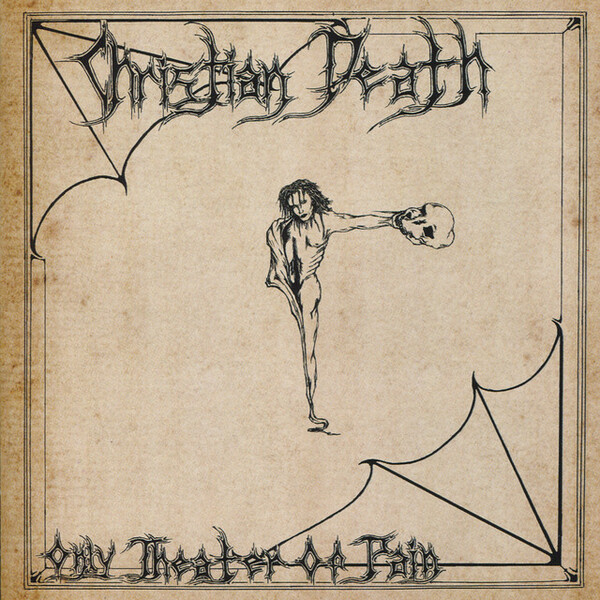
While goth is often associated with a slow, creeping and emotional dance of misery– there are many times that the genre expresses itself through different means, in this case, a sacrifice of atmosphere in return for energy and rage: Deathrock.
Christian Death is a bit more of a niche pick for the genre, but is nonetheless essential to the scene. This album– as the name implies– is edgy to the point of comedy in a way that is played so straight you can’t help but take otherwise cheesy lines as raw as hell. Take “Burnt Offerings”, a song (quite literally) about a woman and her neighbor who have sex with a fireplace and burn to death. Crude, disgusting and utterly perverted– yet it’s one of the standout tracks on the album.
The guitar riffs are really the highlight here, gain turned all the way up, scratchy, dissonant progressions that give off this air of tragedy and darkness. They manage to easily bounce from those weird, theaters of pain like “Burnt Offerings” to upbeat, exciting thrillers like “Romeo’s Distress” (the highlight track of the album) which comments on the hypocrisy of racist christians in the deep south, which admittedly is a much nicer message than most of the rest of the album.
There’s also Rozz William’s excellent vocals, he has a great range but generally stays on the higher octaves and has a tone that sounds almost like a distressed, fearful doomsday preacher. On “Resurrection – Sixth Communion” Williams yells “resurrection” over and over, but turns his vibrato up to such an extreme it sounds like a goat bleating which is not only a very impressive display, but also does a great job at bringing out the satanic imagery.
This album is not as easily suggestible to newcomers to the other albums featured here, but if you can stomach some edge, yelling and quintessential goth atmosphere– check it out.
Violator – Depeche Mode
8.4/10
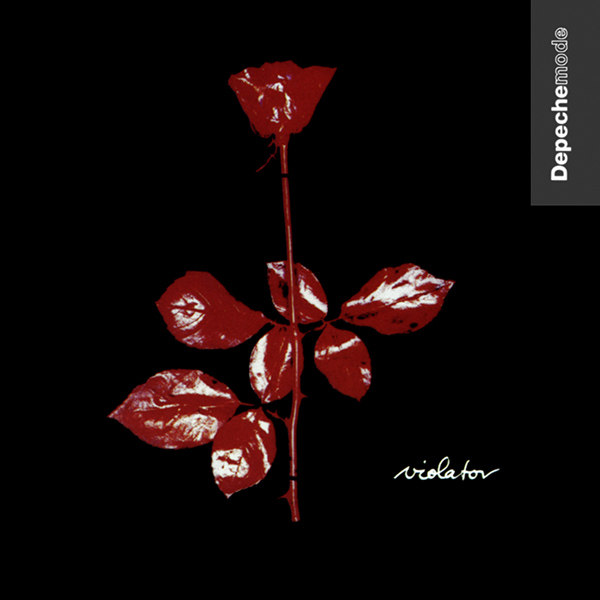
Another great example of goth’s hold across genres, synthpop group Depeche Mode’s masterpiece, “Violator” sounds almost nothing like either of the two previous albums and is still as goth as can be. Darkwave is a type of synthpop that has heavy atmospheric influences for gothic rock, but is musically mostly electronic. Depeche Mode definitely has darker albums that are more explicitly darkwave but speaking strictly essentials– start here.
The album is crafted in a way where it opens with the upbeat “World In My Eyes”, a fun poppier piece that wastes no time displaying the electronic sounds, Dave Gahan’s cool, dark vocals and the low-key industrial style drumming. From there, the album cools down a bit, with slower pieces like “Halo” or “Sweetest Perfection” before the best song on the album “Enjoy The Silence” kicks off the second half.
Realistically, I could fill the entire length of this article solely talking about “Enjoy The Silence” but for the purposes of your (and my editor’s) sanity, I will just say the following. The vocals are perfect. The drumming is perfect. The synth sounds are perfect. The lyrics are perfect. It’s very difficult to write a perfect song, but “Enjoy The Silence” has this incredible dark yet loveable vibe about it that not only makes it a great goth song, but a great song period.
For those of you who are worried about not liking gothic rock, check this out for a more electronic, pop take on what goth has to offer.
Floodland – The Sisters of Mercy
7.6/10
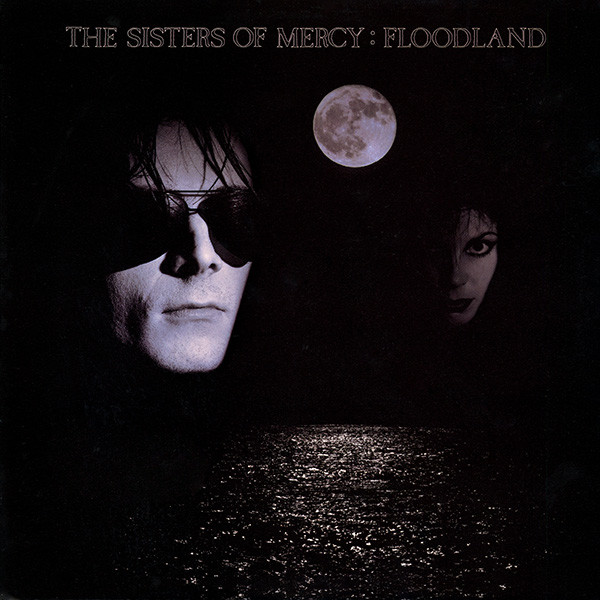
This album fuses gothic rock and darkwave to create– well, actually it’s still just gothic rock. In a way that doesn’t sound exactly like any of the other albums either. This album offers a unique take on darkwave, implementing the synths and energy of darkwave into a gothic rock album to create essentially the perfect album for dancing in a dark, goth club.
Vocalist Andrew Eldritch’s voice is deep, powerful and pushes the track forward with honestly more energy than the drums or bassline do– perhaps the benefit of a baritone vocalist. Backup vocals are provided by Patricia Morrison, the band’s bassist who’s opera-esque choral support makes even the two singers feel so much grander, much to its benefit.
The music has a clear industrial influence here, with clanging drums and metallic sounding, punchy synth riffs. This is clear on the standout track, “This Corrosion” a 10 minute long crescendo of dance, darkwave and the classic factorial clanging that drives it all forward. Although all the tracks have catchy riffs, this one in particular is able to remain exciting over the entire duration, which is certainly impressive.
The lyrics range from anything from floods filling the German coastal city Eldritch lived in while writing (during “Flood I” and “Flood II”) to monuments of regimes crumbling and the Chernobyl disaster (in “Dominion / Mother Russia”). Like much of the genre, despite the variety, the entire thing is charged with an energy of anger and power.
For those who are already fans of The Cure or Depeche Mode and are trying to deepen their understanding of goth music, start with this album.
Tinderbox – Siouxsie and The Banshees
8.1/10
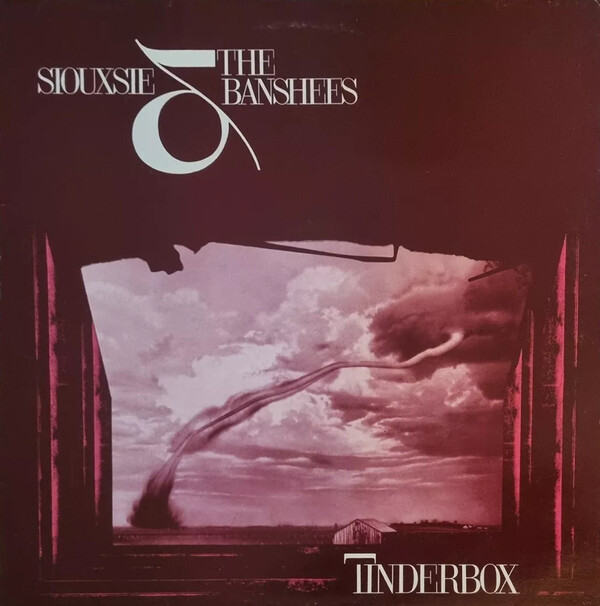
Ethereal, dreamy, sultry and utterly dark. Siouxsie Sioux is the undisputed queen of goth music. There is an endless argument between her two best albums competing for the number one spot. “Juju” and “Tinderbox”, while 1981’s “Juju” generally gets more of the fame with hits like “Spellbound”, I personally feel this album gets the job done a little better with a bit more even distribution of song quality.
The guitar on this album is mostly on the cleaner side, but ran through distortion after it was recorded. This gives it this dreamy feeling that sounds like you’re trying to remember something. The instrumentation also has a bit of fun with itself at times, with washboard-like percussion and more pop-like synths on “Cities in Dust” and sampling of 1953 sci-fi horror movie “It Came from Outer Space” before the track “92°”. There’s also hints of synth-bass occasionally sprinkled throughout, giving the music an alien depth.
The songwriting is incredible, obviously. Post-punk guitar, ethereal synths and pounding drum– in this case though, more than any other band here the absolute standout are Sioux’s vocals. By this point, Sioux was many years into writing music, she and the rest of the band could effortlessly create a soundtrack that perfectly props up her gorgeous voice.
The opening track “Candyman” really puts an emphasis on her swaying, dark singing– not in a negative connotation at all, but she really does wail like a banshee during the chorus, almost like a town crier warning of the titular candyman.
For fans of The Cocteau Twins’s ethereal wave, or any kind of rock, give this album (or its contemporary “Juju”) a listen.
Disintegration – The Cure
10/10
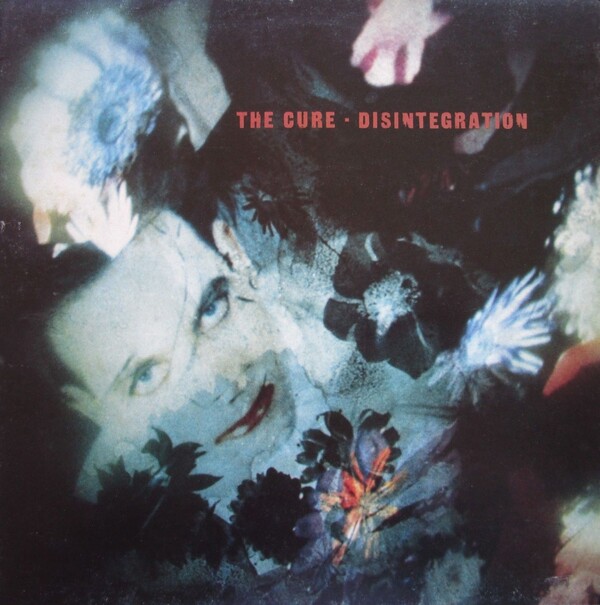
A contender for not just the best goth album of all time but the best album period, The Cure’s magnum opus “Disintegration” is over an hour of dreamy, dark, rock– backed by powerful drumming and decorated with Robert Smith’s ethereal voice.
The feel of the album is best depicted by the album cover itself: cold, yet blooming with flowers. Obviously the compositions are impressive, that’s evident 30 seconds into the first track when the album explodes to life with “Plainsong” and is immediately followed up by “Pictures of You”, one of the band’s best songs both a catchy radio hit and a dark exploration of a past relationship.
It’s that kind of dark, barren world that Robert Smith (happily married to his middle school girlfriend for almost four decades now) so effortlessly explores on this album. He has such an exquisite understanding of misery that’s expressed throughout the tracks– every possible circumstance that could cause a relationship to end is explored here. The speaker’s fault, their ex’s, both, neither even and despite the excellent music, Smith’s lyricism is almost always at the forefront of the tracks.
It is not just the gorgeous vocals, the instrumentation is also key to the vibe here. The drums can range anywhere from pounding backbeats, like in “Closedown” and “Untitled”, or more reserved patterns in tracks like “Lullaby”. Strings (albeit synthetic-sounding ones) float around tracks like “Lullaby” among others, not to mention the horde of other electronic sounds utilized here to adorn the otherwise basic rock ensemble.
I’m always very hesitant to give an album a 10/10, usually that’s reserved for my personal favorites and masterpieces. This album happens to be one of both. Stop what you’re doing and listen to this album. Happy halloween!

























